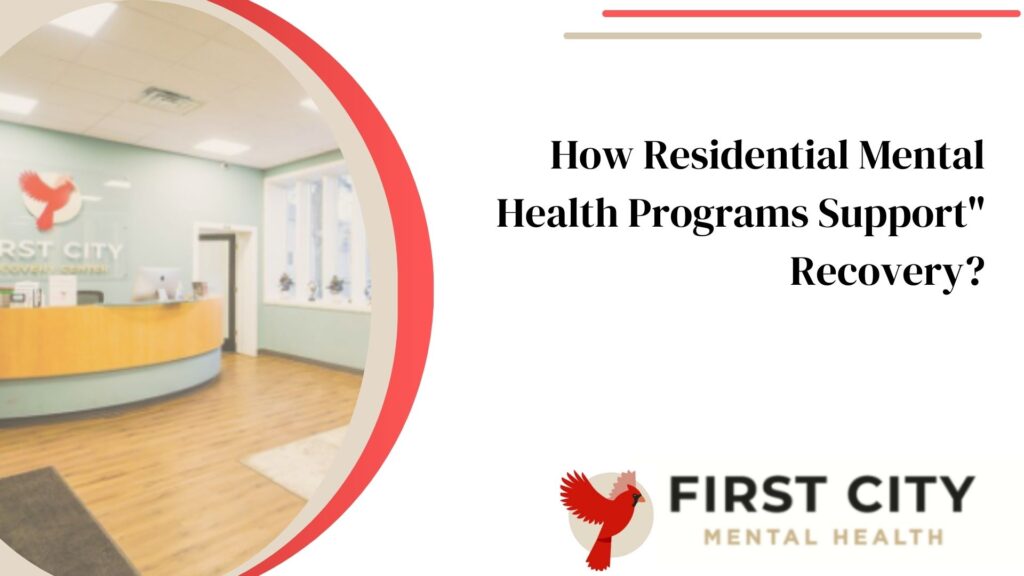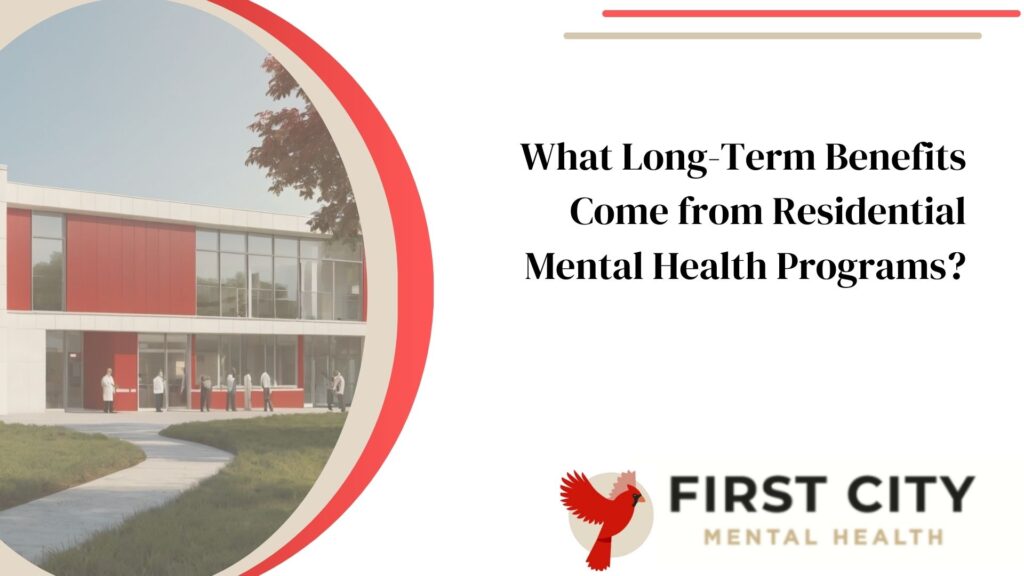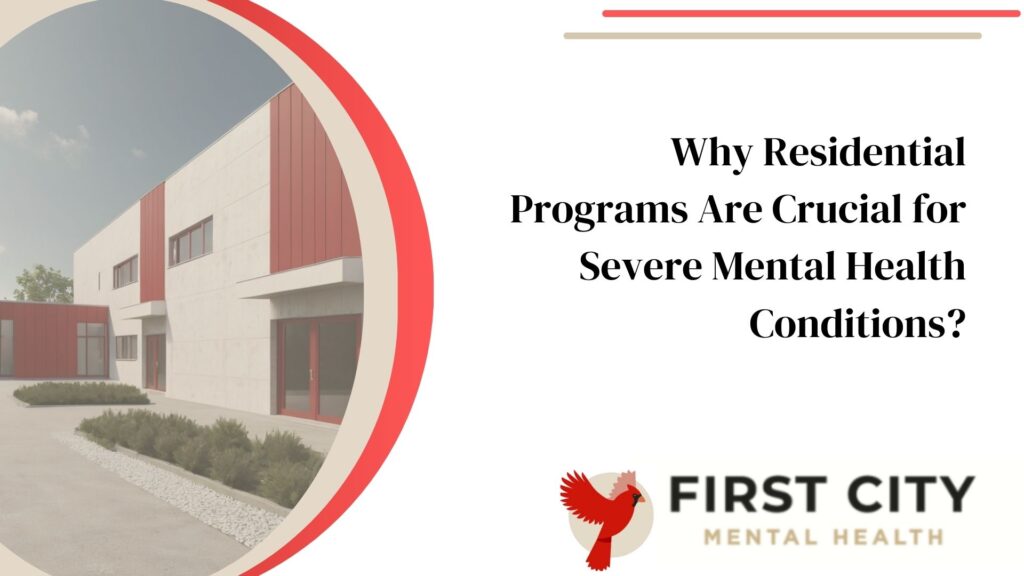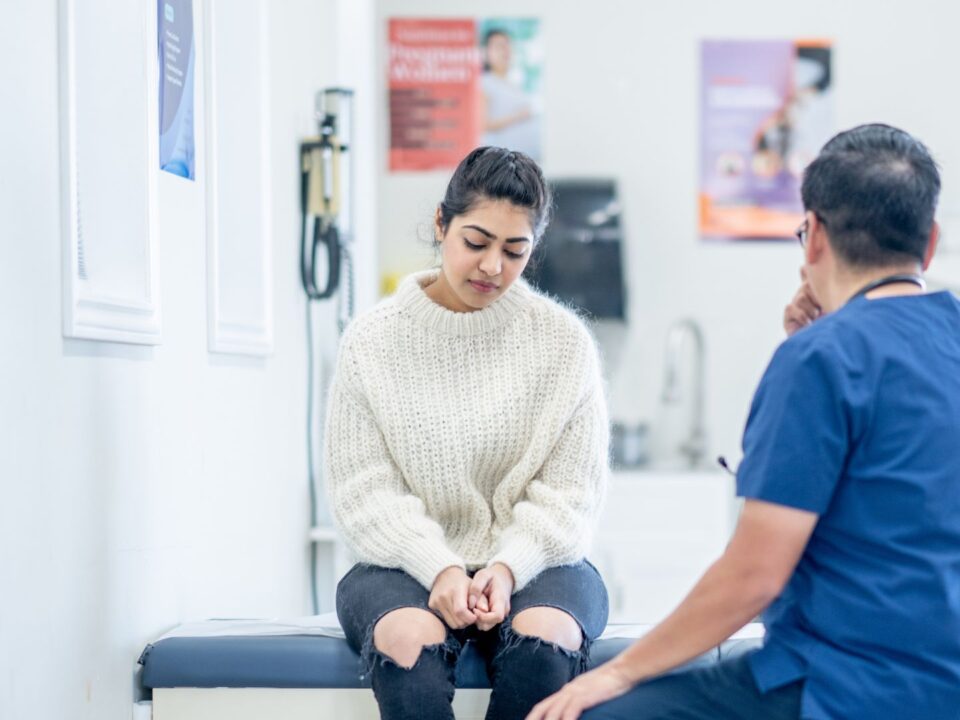
How Long is a Residential Mental Health Treatment Program?
August 4, 2025
What to Expect from a Partial Hospitalization Program?
August 8, 2025Struggling with mental health issues can be overwhelming. Whether it’s depression, anxiety, bipolar disorder, or another condition, these challenges can feel insurmountable. Many people find themselves stuck in a cycle of symptoms without knowing where to turn next.
Residential mental health programs provide an effective solution for those who need more intensive support. These facilities offer comprehensive assessment and intensive treatment in a residential setting, making them an effective tool in treating mental health conditions and addiction, including non-substance addictions like gambling.
Unlike outpatient treatments, which may not offer enough structure or supervision for severe conditions, residential treatment centers provide around-the-clock care tailored to individual needs.
Discover why these telegrams make a difference, from comprehensive assessments to personalized treatment plans and supportive community environments.
Keep reading!
Key Takeaways
- Residential mental health programs offer 24-7 care, ensuring patients receive continuous support and supervision.
- Individualized treatment plans help address each patient’s needs through a comprehensive approach involving psychiatrists, therapists, and nursing staff.
- Patients engage in daily therapeutic sessions, including individual and group therapy sessions, contributing to improved emotional health and life skills development.
Why Residential Treatment Centers Are a Good Choice?
Residential treatment centers provide around-the-clock care for individuals with serious mental illness. These programs include 24-7 security, nursing staff, and medication management.
This setup creates a safe and supportive environment that benefits those in mental health residential Kokomo treatment.
A team of psychiatrists, psychologists, social workers, and nurses collaborates to create individualized treatment plans for each patient. According to the National Alliance on Mental Illness (NAMI), personalized care significantly improves treatment outcomes. Patients can manage these symptoms effectively and work towards living independently.
How Residential Mental Health Programs Support” Recovery?

Residential mental health Kokomo treatment facilities provide around-the-clock care for individuals with serious mental illnesses. These programs offer 6-8 hours of therapeutic programming daily, including therapy sessions and skills training.
A dedicated team of professionals collaborates to create individualized treatment plans tailored to each patient’s needs. Patients receive medication management and nursing care, ensuring their well-being and safety.
Patients benefit from a supportive and nurturing environment where they can build healthy routines. The goal is to help them manage symptoms effectively and gain independence. Many facilities also support those detoxing from substance use disorders, offering comprehensive care that includes security measures like 24/7 staffing.
This holistic approach helps patients successfully navigate the challenges of recovery, setting the foundation for lasting improvements in their mental health.
What Outcomes to Expect from Residential Mental Health Programs?
Patients in mental health residential treatment services can expect significant progress and support. These programs focus on individualized care and comprehensive treatment.
Symptom Management
Patients receive constant supervision to manage their symptoms effectively. The program offers round-the-clock care, ensuring patients have immediate access to help whenever needed.
Enhanced Life Skills
Individuals learn vital life skills through various therapy sessions and training programs. They participate in activities that help them gain independence and confidence in everyday tasks.
Improved Emotional Health
Through individual and group therapy, patients experience a boost in emotional health. This support aids in better understanding and managing emotions.
Medication Management
The clinical team works closely with patients to find the correct medication regimen. Ensuring proper dosages helps stabilize conditions and promotes long-term wellness.
Structured Environment
A structured setting provides a stable routine that benefits mental health recovery. Patients follow daily schedules that include therapy, meals, recreation, and rest, fostering a sense of normalcy.
Family Involvement
Family therapy sessions are often part of the treatment plan. They help loved ones understand the condition better and provide additional support for the patient’s recovery journey.
Support Networks
Through group therapy, participants build strong connections with peers facing similar challenges. These relationships offer mutual encouragement and shared experiences.
Reduced Relapse Rates
Intensive treatments decrease the likelihood of relapse significantly by addressing core issues comprehensively within a controlled environment.
Personalized Treatment Plans
Each person receives a customized treatment approach tailored to their specific needs, effectively ensuring focused care that effectively targets individual challenges.
Long-Term Benefits
Long-term gains from these programs include improved social functioning, better self-care habits, and enhanced quality of life due to consistent therapeutic interventions.
What Support Systems Are in Place in Residential Programs?
Residential mental health in Indiana programs, often referred to as residential programs, have extensive support systems. To ensure safety and stability, the program includes 24-hour security, nursing staff, and medication management. A team of psychiatrists, psychologists, social workers, and nurses collaborates to create individualized treatment plans for each patient.
These facilities offer a comprehensive approach that combines therapy groups, medication management, and skills training. This integrated support helps individuals rebuild life skills essential for their recovery journey.
Additionally, the structured environment provides emotional support through consistent routines and healthy relationships with peers and staff.
What Long-Term Benefits Come from Residential Mental Health Programs?

Mental health residential Indiana treatment programs like Indiana and Kokomo provide comprehensive, around-the-clock care. This structured environment helps individuals with serious mental illnesses manage their symptoms effectively.
Over time, this continuous support enables patients to develop essential coping mechanisms and life skills. These tools are crucial for maintaining independence after leaving the program.
Residents receive individualized attention from a specialized treatment team, which includes psychiatrists, therapists, and support staff who work together to address both mental health conditions and co-occurring substance use disorders.
Patients often experience improved overall well-being through evidence-based treatments offered in residential facilities. Participants engage in therapeutic activities that promote social interaction and emotional growth.
Through consistent individual psychotherapy sessions and group therapy, residents build strong support networks that extend beyond their stay in the facility. These benefits contribute to better long-term outcomes such as reduced relapse rates for issues like substance abuse and increased ability to live independently in community settings.
The holistic approach ensures each individual receives tailored care suited to their unique needs, setting them up for sustained success even after they return home.
How Does the Structured Environment Benefit Patients in Residential Programs?
The structured environment of residential mental health treatment facilities offers patients around-the-clock care and intensive support. This constant supervision ensures safety and immediate assistance for those experiencing severe mental illness.
Patients engage in therapeutic programming for 6-8 hours daily, providing a solid foundation for recovery.
A team of dedicated mental health professionals collaborates to create individualized treatment plans, including medication management, therapy sessions, and skills training. This personalized approach enables comprehensive care tailored to each patient’s needs.
Next, let’s explore what makes residential mental health programs unique.
What Makes Residential Mental Health Programs Unique?
A patient’s environment plays a crucial role in patient recovery. Residential treatment for mental health programs provide around-the-clock care, setting them apart from outpatient services. Patients receive 6-8 hours of therapeutic programming daily to build a solid foundation for recovery.
A multidisciplinary team, including psychiatrists, psychologists, social workers, and nurses, collaborates to create individualized treatment plans for each patient. These facilities offer 24-7 security, nursing staff, and medication management to ensure comprehensive care.
This integrated approach makes residential mental health treatment uniquely effective for individuals with serious mental illnesses.
Why Residential Programs Are Crucial for Severe Mental Health Conditions?

Residential treatment for mental health programs provide essential support for individuals with severe mental health conditions. These residential mental health facilities offer around-the-clock care and intensive therapy, addressing needs that outpatient services might miss.
A dedicated team of professionals creates individualized treatment plans focusing on medication management, therapeutic interventions, and skills training. This comprehensive approach ensures patients receive the help they need to manage symptoms effectively.
Therapeutic programming in residential settings includes individual and group therapy sessions. It also integrates life skills reintegration, which helps patients gain the confidence needed for independent living.
The structured environment in these facilities reduces exposure to street drugs and other triggers present in a less controlled home environment. Residents can progress toward improved mental health outcomes and long-term stability by receiving consistent care from a skilled multidisciplinary team.
Conclusion
Residential mental health facility programs offer structured support. Patients receive around-the-clock care and intensive therapy. These programs provide a safe space for individuals to recover.
The diverse team of professionals creates personalized treatment plans. Individuals learn essential skills to manage their symptoms and live more independently. Embrace the opportunity for real, lasting change in residential facilities!
FAQs
1. What is a residential mental health program?
A residential mental health program provides 24/7 care in a safe environment for people with mental health disorders.
2. How can residential treatment help young adults?
Residential treatment programs offer specialized psychiatric services and evidence-based treatments to support young adults in their recovery journey.
3. Are there specific facilities for mental health treatment in Indiana?
Yes, several residential mental health facilities in Indiana, including those located in Kokomo, provide comprehensive care and therapeutic community settings.
4. What types of disorders do these programs treat?
These programs treat various conditions such as eating disorders, self-destructive behaviors, and other serious mental health issues.
5. Do family members get involved in the treatment process?
Many residential facilities encourage family members to participate through scheduled visits and joint therapy sessions.






